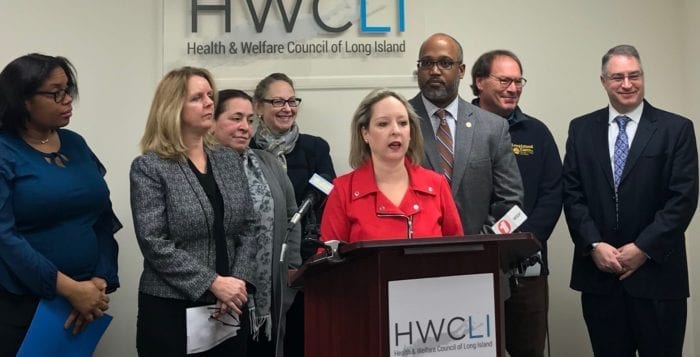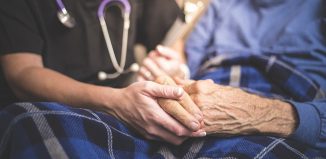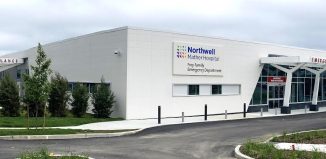Nonprofits, food pantries work together to help WIC clients

By David Luces
Suffolk County officials are working to partner with food pantries and nonprofits to help ensure low-income women and children keep access to basic food and health care in the months ahead as the Special Supplemental Nutrition Program for Women, Infants, and Children undergoes a major change in the months ahead.
The county offices of the WIC program are closed Jan.14 for a week to upgrade to a debit card-based system, making the transition away from paper checks to electronic benefit transfer cards in accordance with New York State law.
The facilities will reopen Jan. 22 in limited capacity only to allow time for employee training and EBT card distribution to clients.
“WIC sites are not only providers, they also serve as powerful community centers.”
— Rebecca Sanin
Suffolk officials expect the WIC program to be back up and running in April, but many are concerned that its recipients should have ready access to food and health care during
the transition.
The officials viewed the new EBT system changes as necessary to modernize and streamline the program for its more than 12,000 Suffolk recipients.
“I can’t think of no greater priority than making sure babies and children in their youngest years are well fed and never face nutritional insecurities,” Rebecca Sanin, president and CEO of Health & Welfare Council of Long Island, said during a Jan. 10 press conference.
The council, Hauppauge-based Long Island Cares and Island Harvest of Bethpage have compiled a listing of food pantries in close proximity to WIC offices for families in need during the closure at www.hwcli.com/wic-closings.
WIC provides more than food for low-income families, it also offers basic health care for children under age 5 including height, weight, blood tests and iron levels. The program provides women and children with access to nutritional counseling, breastfeeding support and peer counseling.
“WIC sites are not only providers, they also serve as powerful community centers,” Sanin said. “Food security leads to lower infant mortality rates and safer pregnancies.”
Paule Pachter, president and CEO of nonprofit Long Island Cares, said he recognizes there are challenges ahead.
“If the public doesn’t provide the food to the pantries, we don’t have them.”
— Paule Pachter
“When you are trying to provide food for mothers and babies, you are talking about some of the most expensive food on the market,” Patcher said. “Formula, baby food, diapers, specialized food — this stuff is not readily available at the local food pantries.”
Many individuals rely on LI Cares and Island Harvest for these products.
“If the public doesn’t provide the food to the pantries, we don’t have them,” he said. “We’ve been preparing for this day for quite some time.”
As part of the preparations for the months ahead, LI Cares has made sure that mothers can have access to these vital products at their satellite locations in Freeport, Lindenhurst and Huntington Station.
The Hauppauge nonprofit also created mobile outreach units to go into the community to make residents aware of the ongoing closure and changes to the EBT system. They will be visiting Centereach, Bay Shore, Bohemia, Brentwood, Patchogue, Riverhead and Southampton.
Sanin said WIC agencies have worked very hard to get in contact with clients to pick up their checks in advance.
In addition, part of the new system will include the launch of a new smartphone app, WIC2Go, that will let clients track their benefits, find vendors and items.
“The new system will be much easier for clients,” Sanin said.






